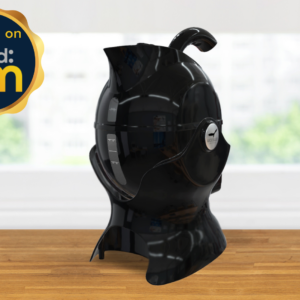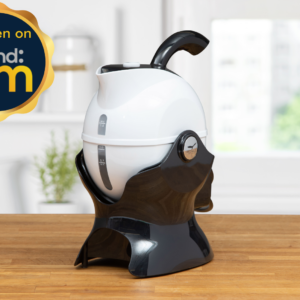We’re not too far from the long-awaited summer months, the days are longer and the sun (ideally) is brighter. It can be easy for some of us to slip out of our usual routines during the summer. Did you know that a poor night’s sleep can actually worsen arthritic pain?
When it comes to living and managing arthritis day-to-day, getting enough quality sleep is essential to maintain optimal health and wellbeing.
How Sleep Affects Arthritic Pain:
Interesting fact; when we don’t get enough sleep, our bodies pain threshold can lower. Which means, the point at which you start to feel pain is lower. This can lead to:
- Increased levels of pain.
- Having pain where it might not have been painful before.
- Experiencing pain that was usually only felt in a specific part of the body – now in other areas of the body.
What is a Good Night’s Sleep?
As we age, the amount of sleep we need changes, the older we are, the less sleep we generally need. For the vast majority of us, somewhere between 6-9 hours of sleep is a good night’s sleep.
If you are unsure whether your night’s sleep was good, why not ask yourself the following questions.
- Do I feel tired during the day?
- Am I struggling with my energy levels?
- Do I feel refreshed when I wake up and throughout the day?
Sadly, if you answered yes to questions 1 and 2, it might be time to review your sleep patterns.
Good Habits for a Good Night’s Sleep
Routine
This can be a hard habit to develop at first but you will be happy you did. Try this:
- Set yourself a bed time and go to bed at that time each night.
- Establish your routine or to-do list – what you want/need to have done before your bed time.
- Remove all light-emitting devices an hour before bed – this means phones, tablets, laptops, TV, E-readers etc.
- Getting yourself a calming cup of tea or warm milk and head to bed.
Hot Drinks
When you were a child, chances are your parents gave you warm milk before bed. This is because, milk contains 2 nutrients that are known to help induce sleep. Chamomile tea has the same effect too.
In fact, chamomile tea is used as a natural remedy to help reduce inflammation, anxiety and treat insomnia. It is also been regarded as a mild tranquilizer.
Now, we wouldn’t recommend a cuppa that could result in pain from using the kettle. This is where our Uccello Kettle comes in. With its unique tilt-to-pour action, there is no more heavy lifting, balancing or straining yourself for a cuppa.
Heat Therapy
It can be hard to get comfortable and fall asleep if you are still in pain. This is where heat therapy can come in. Whether it’s a hot water bottle or a heat pad resting on the painful area. A hot bath or shower can also help relax you and ease your pain before bed too.
A Good Mattress
You never realize how important a good mattress is until you have slept a night on a bad one. If you are able to sleep 6-8 hours a night, that is 30-40 hours a week. No one wants to be uncomfortable 30-40 hours a week.
A good mattress, can make a huge difference to your level of comfort and support as you sleep. When it comes to shopping around for a mattress for you or someone who is living with arthritis it is recommended that it be supportive but not too hard.
If funds are tight and a new mattress isn’t on the cards, why not try a mattress topper?
Pillows Aren’t Just for Your Head
If you are anything like me, you have a mountain of pillows of the bed. A well placed pillow can be just as effective as a good mattress.
For example, if you have arthritis in your hips or knees and prefer to sleep on your side, you could have a pillow under the hip or between the knees as support.
If the arthritis is in the shoulders, a wedge pillow or sleeping on your back would help here too.
Stretch It Out
Getting in regular exercise will help reduce the level of joint pain you feel as well as help you maintain your joints range of motion. In fact, those who exercise regularly tend to have a better nights sleep.
Of course, that doesn’t mean you should dive into a busy routine and drink raw eggs to get a good nights sleep. Talk to your doctor or physical therapist first, they will be able to recommend a routine for you.
Pain Relief
You know your pain better that anyone and you know exactly what works and doesn’t. If our few tips above haven’t helped, it may be time to turn to pain relief whether it be over the counter of prescribed by your doctor.














Leave a Comment